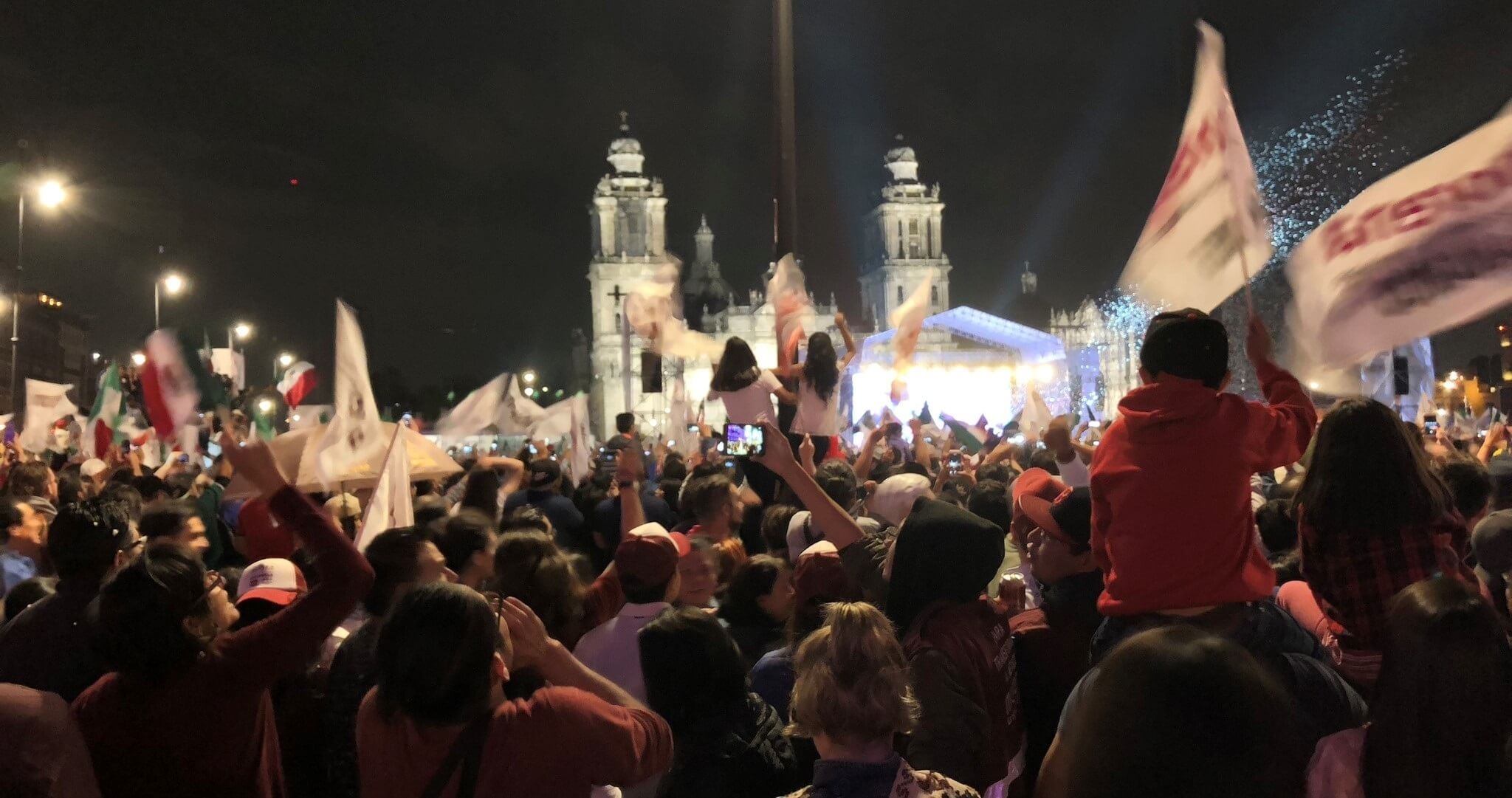A woman is searching for her relative who has been disappeared by the army and organized crime; a child abandoned on the streets is looking for food; an indigenous activist is imprisoned for defending her rights; a mutilated body is hanging from a bridge…This has been the reality in Mexico for decades. While the international community turns its back, a woman is killed every 7 hours, 27 million people are experiencing extreme poverty, and just in the last two presidential terms, 200,000 people have been killed and 32,000 have been disappeared – a majority of them young people.
My generation grew up with the Institutional Revolutionary Party (PRI). We have only known the corruption, violence and authoritarianism of a party that has dedicated itself to impoverishing, denigrating, killing, and depriving millions of people of their fundamental rights in order to ensure the privileges and interests of corporate power, organized crime, fundamentalist religious groups, chiefs, and other powerful groups. It became a party that turned narco-politics and the exercise of democracy into constituent elements of public action; and pushed the country into a crisis of violence with human rights violations unprecedented in its recent history.
This past July 1st, despite fear campaigns, the buying and coercion of votes, the risk of voting against the town’s chieftain, more than 30 million voted against PRI and waited hours to exercise a right historically denied to them. The principal triumph of past elections was of collective power manifesting itself, overcoming fear and hopelessness, saying “enough,” and believing that change is possible. Seeing so many who had been previously discriminated against in so many ways, crying from happiness, taking to the streets, playing themselves protagonists of history is perhaps the most beautiful moment we will remember form this day. It is precisely the conscience of this collective power starting a transformative change that, like the EZLN and other libertarian movements have taught us, can only be made “down and to the left” and beyond institutions.
Morena, the political force that will guide the government starting in December will without doubt face multiple obstacles and limitations. The possibility of seeing great institutional changes will be limited. We must keep in mind the existing institutional design, the bureaucracy made to hinder any policies meant to truly serve people’s needs, and the internal contradictions and alliances Morena made with powerful economic groups and fundamentalist religious groups during the electoral process.
However, there are fundamental things it could do: it can and should abstain itself from suppressing and criminalizing protests and other social movements; it can and should attend to the urgent basic needs that millions of people have; it can and should completely stop corruption and impunity and resolve the demands for justice from victims of violence. Women and our rights, including abortion rights, indigenous peoples and the common goods they protect, will have to be priority for the State – at least to not revert in rights already gained.
This agenda is applicable to not only Mexicans but to thousands of migrants who traverse and live in the country. It will not change the system but will give them a chance to breathe and provide some dignity to these people, and allow organizations and communities to restructure and strengthen themselves. The next six years will grant an opportunity to heal a social fabric deeply hurt by violence, inequality, and looting. We will have to be demanding and vigilant of the new government, but conscious of what can be furthered at the institutional level. Great time and energy will have to be dedicated to the construction of supporting communities, the strengthening of collective power, and the eradication of the misogyny, classism, and racism so deeply rooted in our society. It is time to look inward to our own movements and face the contradictions of our political practices, to advance our processes of managing and constructing liberated communities.
From the diverse expressions of international solidarity in the Spanish State, there is a lot that can be done in this new stage. Mexico, like all of Latin America suffers from dispossession and violence caused by extractive industries of Spanish capital (from wind to tourism), which is why we will have to be vigilant of trade agreements that so far continue to sustain rights violations. Also pending is the liberation of political prisoners, and of due justice to organizations and activists who have been victims of repression which will continue to be denounced at the international level. In this new landscape, more than ever it will be necessary to support social movements efforts and initiatives, focus on certain struggles, and build common tools and knowledge.


























